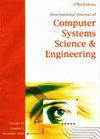Detecting Ethereum Ponzi Schemes Through Opcode Context Analysis and Oversampling-Based AdaBoost Algorithm
IF 2.2
4区 计算机科学
Q2 Computer Science
引用次数: 2
Abstract
: Due to the anonymity of blockchain, frequent security incidents and attacks occur through it, among which the Ponzi scheme smart contract is a classic type of fraud resulting in huge economic losses. Machine learning-based methods are believed to be promising for detecting ethereum Ponzi schemes. However, there are still some flaws in current research, e.g., insufficient feature extraction of Ponzi scheme smart contracts, without considering class imbalance. In addition, there is room for improvement in detection precision. Aiming at the above problems, this paper proposes an ethereum Ponzi scheme detection scheme through opcode context analysis and adaptive boosting (AdaBoost) algorithm. Firstly, this paper uses the n-gram algorithm to extract more comprehensive contract opcode features and combine them with contract account features, which helps to improve the feature extraction effect. Meanwhile, adaptive synthetic sampling (ADASYN) is introduced to deal with class imbalanced data, and integrated with the Adaboost classifier. Finally, this paper uses the improved AdaBoost classifier for the identification of Ponzi scheme contracts. Experimentally, this paper tests our model in real-world smart contracts and compares it with representative methods in the aspect of F1-score and precision. Moreover, this article compares and discusses the state of art methods with our method in four aspects: data acquisition, data preprocessing, feature extraction, and classifier design. Both experiment and discussion validate the effectiveness of our model.基于操作码上下文分析和过采样AdaBoost算法的以太坊庞氏骗局检测
:由于区块链的匿名性,通过区块链发生的安全事件和攻击频繁,其中庞氏骗局智能合约是典型的欺诈类型,造成巨大的经济损失。基于机器学习的方法被认为有希望检测以太坊的庞氏骗局。然而,目前的研究还存在一些缺陷,例如庞氏骗局智能合约的特征提取不够,没有考虑类别的不平衡。此外,在检测精度上还有提高的空间。针对上述问题,本文提出了一种基于操作码上下文分析和自适应增强(AdaBoost)算法的以太坊庞氏骗局检测方案。首先,本文使用n-gram算法提取更全面的合约操作码特征,并将其与合约账户特征结合,有助于提高特征提取效果。同时,引入自适应合成采样(ADASYN)来处理类不平衡数据,并与Adaboost分类器相结合。最后,本文使用改进的AdaBoost分类器对庞氏骗局合约进行识别。实验上,本文在现实世界的智能合约中对我们的模型进行了测试,并在f1得分和精度方面与代表性方法进行了比较。此外,本文还从数据采集、数据预处理、特征提取和分类器设计四个方面对现有方法与我们的方法进行了比较和讨论。实验和讨论验证了模型的有效性。
本文章由计算机程序翻译,如有差异,请以英文原文为准。
求助全文
约1分钟内获得全文
求助全文
来源期刊

Computer Systems Science and Engineering
工程技术-计算机:理论方法
CiteScore
3.10
自引率
13.60%
发文量
308
审稿时长
>12 weeks
期刊介绍:
The journal is devoted to the publication of high quality papers on theoretical developments in computer systems science, and their applications in computer systems engineering. Original research papers, state-of-the-art reviews and technical notes are invited for publication.
All papers will be refereed by acknowledged experts in the field, and may be (i) accepted without change, (ii) require amendment and subsequent re-refereeing, or (iii) be rejected on the grounds of either relevance or content.
The submission of a paper implies that, if accepted for publication, it will not be published elsewhere in the same form, in any language, without the prior consent of the Publisher.
 求助内容:
求助内容: 应助结果提醒方式:
应助结果提醒方式:


